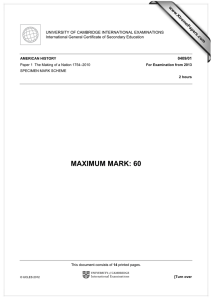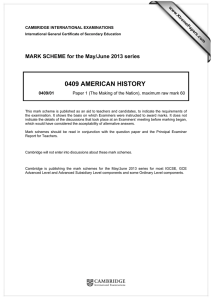Reflective Essay Rubric - Oregon State University
advertisement
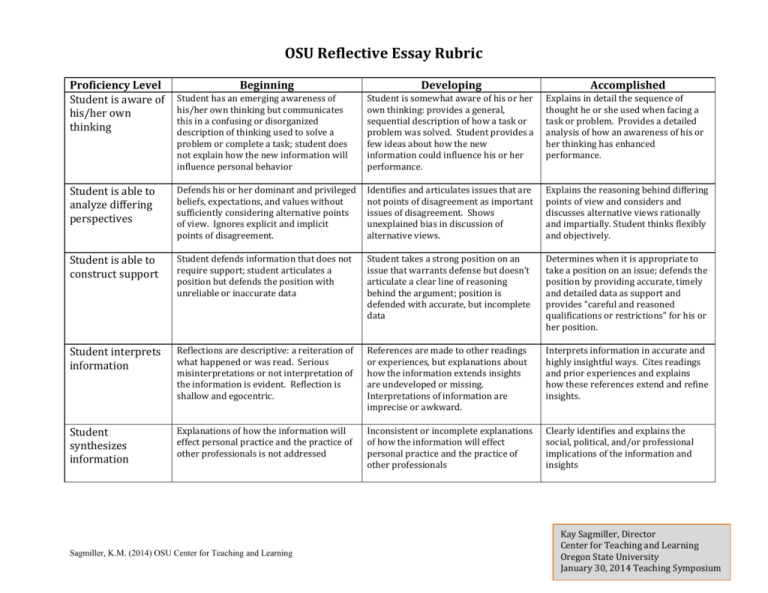
OSU Reflective Essay Rubric Proficiency Level Student is aware of his/her own thinking Beginning Developing Accomplished Student has an emerging awareness of his/her own thinking but communicates this in a confusing or disorganized description of thinking used to solve a problem or complete a task; student does not explain how the new information will influence personal behavior Student is somewhat aware of his or her own thinking: provides a general, sequential description of how a task or problem was solved. Student provides a few ideas about how the new information could influence his or her performance. Explains in detail the sequence of thought he or she used when facing a task or problem. Provides a detailed analysis of how an awareness of his or her thinking has enhanced performance. Student is able to analyze differing perspectives Defends his or her dominant and privileged beliefs, expectations, and values without sufficiently considering alternative points of view. Ignores explicit and implicit points of disagreement. Identifies and articulates issues that are not points of disagreement as important issues of disagreement. Shows unexplained bias in discussion of alternative views. Explains the reasoning behind differing points of view and considers and discusses alternative views rationally and impartially. Student thinks flexibly and objectively. Student is able to construct support Student defends information that does not require support; student articulates a position but defends the position with unreliable or inaccurate data Student takes a strong position on an issue that warrants defense but doesn’t articulate a clear line of reasoning behind the argument; position is defended with accurate, but incomplete data Determines when it is appropriate to take a position on an issue; defends the position by providing accurate, timely and detailed data as support and provides “careful and reasoned qualifications or restrictions” for his or her position. Student interprets information Reflections are descriptive: a reiteration of what happened or was read. Serious misinterpretations or not interpretation of the information is evident. Reflection is shallow and egocentric. References are made to other readings or experiences, but explanations about how the information extends insights are undeveloped or missing. Interpretations of information are imprecise or awkward. Interprets information in accurate and highly insightful ways. Cites readings and prior experiences and explains how these references extend and refine insights. Student synthesizes information Explanations of how the information will effect personal practice and the practice of other professionals is not addressed Inconsistent or incomplete explanations of how the information will effect personal practice and the practice of other professionals Clearly identifies and explains the social, political, and/or professional implications of the information and insights Sagmiller, K.M. (2014) OSU Center for Teaching and Learning Kay Sagmiller, Director Center for Teaching and Learning Oregon State University January 30, 2014 Teaching Symposium
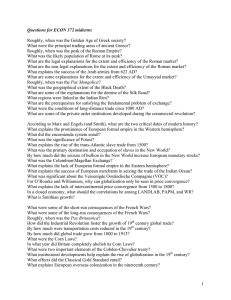
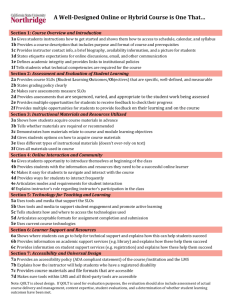
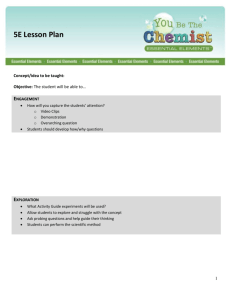


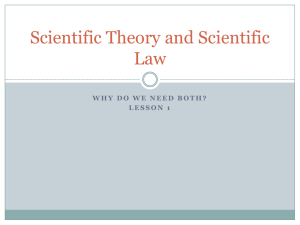
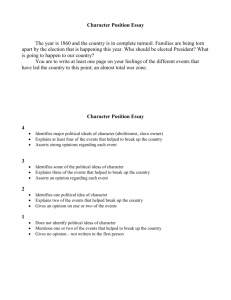
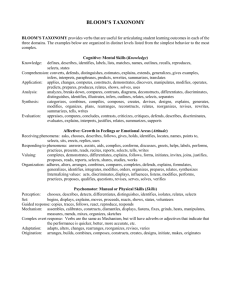
![Tokugawa [Edo] Period (Feudal Japan) Class System Project](http://s3.studylib.net/store/data/009652623_1-9f65bbc46d7ab4b73ca726a8b700e2d1-300x300.png)
